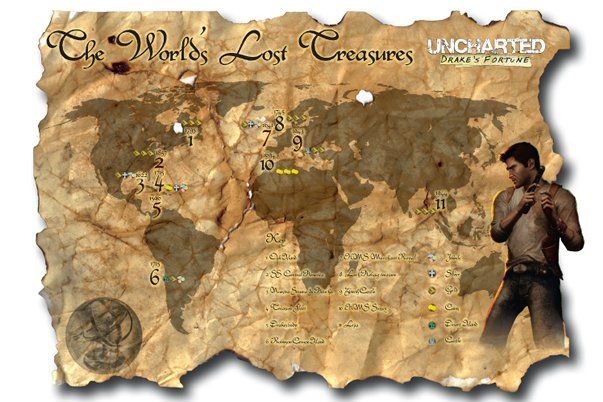Navigating the Uncharted: A Comprehensive Guide to "Off the Map" Films
Related Articles: Navigating the Uncharted: A Comprehensive Guide to "Off the Map" Films
Introduction
With enthusiasm, let’s navigate through the intriguing topic related to Navigating the Uncharted: A Comprehensive Guide to "Off the Map" Films. Let’s weave interesting information and offer fresh perspectives to the readers.
Table of Content
Navigating the Uncharted: A Comprehensive Guide to "Off the Map" Films

"Off the map" films, a genre defying simple categorization, represent a unique and powerful cinematic experience. These films, often characterized by their unconventional narratives, remote settings, and exploration of themes beyond the familiar, offer audiences a chance to escape the confines of the ordinary and delve into the unknown. This exploration can take various forms, from journeys into uncharted territories, both physical and emotional, to narratives that challenge societal norms and delve into the depths of human experience.
While the term "off the map" itself is not a formally recognized genre, it serves as a useful umbrella term for a diverse range of films that share certain common threads. These films often feature:
1. Remote and Unfamiliar Settings: "Off the map" films frequently take place in locations far removed from the typical urban settings of mainstream cinema. These locations might be geographically isolated, such as remote islands, dense forests, or desolate deserts, or they might be metaphorical spaces that represent the outer limits of human understanding, such as dreamscapes, dystopian societies, or the vastness of outer space.
2. Unconventional Narratives: The stories told in these films often challenge traditional storytelling structures and tropes. They might embrace non-linear narratives, focus on character development over plot, or explore themes that are rarely addressed in mainstream cinema. The emphasis is often on the journey, the exploration of the unknown, and the personal growth that arises from confronting the unfamiliar.
3. Exploration of Human Experience: "Off the map" films often delve into the depths of human experience, exploring themes of isolation, survival, identity, and the search for meaning. They can be deeply introspective, prompting viewers to confront their own fears, desires, and limitations.
4. A Focus on the Individual: While "off the map" films can feature ensemble casts, they often center on the experiences of one or a few central characters. These characters are often driven by a strong sense of purpose, a desire for discovery, or a need to escape the constraints of their current lives. Their journeys are often fraught with danger, uncertainty, and personal transformation.
Benefits of Exploring "Off the Map" Films:
- Expanding Your Cinematic Horizons: These films offer a welcome departure from the predictable narratives and familiar tropes of mainstream cinema. They challenge viewers to think differently, to embrace the unknown, and to engage with new perspectives.
- Deepening Your Understanding of Human Experience: By exploring themes of isolation, survival, and the search for meaning, "off the map" films can provide valuable insights into the complexities of human nature. They can offer a sense of catharsis, allowing viewers to process their own emotions and experiences through the lens of the characters on screen.
- Promoting Empathy and Understanding: By portraying characters and situations that are often marginalized or overlooked in mainstream cinema, these films can foster empathy and understanding for those who live outside the mainstream. They can challenge viewers to question their own assumptions and prejudices, and to embrace the richness and diversity of human experience.
- Stimulating Creativity and Imagination: The unconventional narratives and unique settings of "off the map" films can inspire creativity and imagination. They can spark new ideas, challenge conventional thinking, and encourage viewers to see the world in new and exciting ways.
FAQs About "Off the Map" Films:
Q: How do I find "off the map" films?
A: While there is no official genre designation, "off the map" films often fall under categories such as independent cinema, arthouse films, foreign films, and documentaries. Online film databases and streaming platforms often allow you to filter by genre, director, or themes, making it easier to discover films that fit this description.
Q: What are some examples of "off the map" films?
A: Some well-known examples include:
- "The Motorcycle Diaries" (2004): A biographical drama following the journey of Ernesto "Che" Guevara through South America.
- "Into the Wild" (2007): A biographical drama based on the true story of Christopher McCandless, a young man who abandons his privileged life to live off the grid in the Alaskan wilderness.
- "Cast Away" (2000): A survival drama about a FedEx executive who is stranded on a deserted island after a plane crash.
- "The Revenant" (2015): A revenge thriller set in the 1820s American frontier, following a frontiersman’s fight for survival after being mauled by a bear.
- "Nomadland" (2020): A drama about a woman in her sixties who, after losing everything in the Great Recession, embarks on a journey through the American West, living as a van-dwelling modern-day nomad.
Q: Are "off the map" films always about physical journeys?
A: Not necessarily. While many "off the map" films feature characters who embark on physical journeys, others focus on internal journeys of self-discovery, exploration of the human psyche, or the search for meaning in an uncertain world.
Q: What makes "off the map" films different from mainstream cinema?
A: "Off the map" films often prioritize character development, thematic exploration, and artistic expression over commercial appeal and box office success. They may challenge conventional storytelling structures, embrace unconventional narratives, and explore themes that are rarely addressed in mainstream cinema.
Tips for Appreciating "Off the Map" Films:
- Be Open to New Experiences: "Off the map" films often challenge viewers to step outside their comfort zones and embrace the unfamiliar. Be prepared to engage with unconventional narratives, complex characters, and themes that may be different from what you’re used to.
- Focus on the Journey: These films often prioritize the journey over the destination. Pay attention to the character’s experiences, their growth, and their interactions with the world around them.
- Embrace Ambiguity: "Off the map" films often leave room for interpretation and encourage viewers to draw their own conclusions. Don’t expect everything to be neatly tied up with a happy ending.
- Seek Out Recommendations: Talk to friends, critics, or fellow film enthusiasts to find recommendations for "off the map" films that might appeal to your tastes.
- Explore Different Genres: While "off the map" films are not a recognized genre, they can often be found within other genres, such as independent cinema, arthouse films, foreign films, and documentaries.
Conclusion:
"Off the map" films offer a unique and enriching cinematic experience that transcends the limitations of traditional genres. They invite viewers to explore the unknown, both geographically and emotionally, and to confront the complexities of human experience. By embracing the unconventional, challenging the familiar, and exploring the depths of human potential, these films offer a powerful and thought-provoking journey for audiences willing to venture beyond the well-trodden paths of mainstream cinema.








Closure
Thus, we hope this article has provided valuable insights into Navigating the Uncharted: A Comprehensive Guide to "Off the Map" Films. We appreciate your attention to our article. See you in our next article!